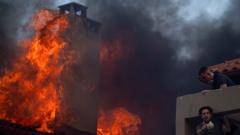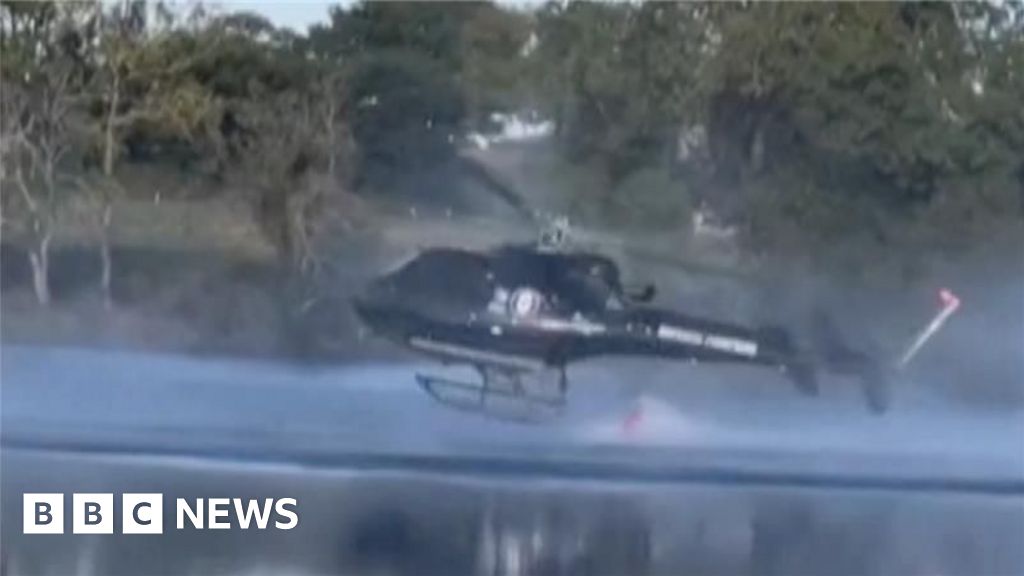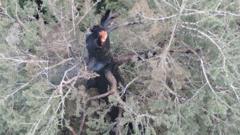Greece is currently grappling with devastating wildfires as the country faces an unrelenting heatwave, prompting firefighters to intensify their efforts to contain numerous outbreaks across the nation. On Sunday, temperatures soared to a staggering 42.4C (108.32F) in central Greece, aggravating an already dire situation. Firefighters were actively battling five significant fire fronts in the Peloponnese and prominent islands including Evia, Kythira, and Crete.
In a concerning parallel, neighboring Turkey is experiencing its highest recorded temperatures, impacting several regions with rampant wildfires. Turkey's forestry minister, Ibrahim Yumakli, expressed grave concern over the ongoing situation, anticipating several days of perilous conditions before the fires were controlled. Meteorologists noted a chilling record high of 50.5C in Silopi, marking a stark rise over the previous record of 49.5C.
Firefighters in Turkey have endured a grueling four-day fight against blazes, notably in Karabuk province. Recent reports indicate that ten firefighters tragically lost their lives battling a fire in Eskisehir while water consumption restrictions were announced by local authorities, including the popular Cesme resort area.
As the infernos rage on, Greece has formally sought assistance from the EU Civil Protection Mechanism to deploy six firefighting aircraft. Fire brigade spokesperson Vasilios Vathrakoyannis stated that firefighting efforts improved overnight, yet challenges remain, especially with high winds exacerbating the fires. Giannis Kefalogiannis, Greece’s climate crisis minister, highlighted the significant damage, loss of life, and destruction of properties and forests due to the ongoing fires.
In Kythira, a rapidly spreading fire has already affected nearly 20% of the island. Urgent evacuation alerts have been issued for multiple villages. Firefighters have remained deployed on-site, utilizing helicopters and water-dropping aircraft to tackle re-emerging flare-ups.
On Evia, a blaze near Pissona has spiraled out of control, injuring several firefighters and leaving communities powerless. Messinia is witnessing intensified wildfires that have already caused substantial property and agricultural damage. In Attica, where Athens is located, evacuations were necessary as fires expanded through several residential areas, although the main fire front has been partially contained.
Firefighting crews continue to struggle against a sprawling 20km fire front in Crete’s Chania region, threatening local agriculture and exacerbated by strong southwesterly winds. Meanwhile, previous fires in Chios consumed 4,700 hectares, illustrating the scale of the environmental crisis facing the region. With emergency services stretched thin, the long-term ramifications of these wildfires may linger for months to come.





















